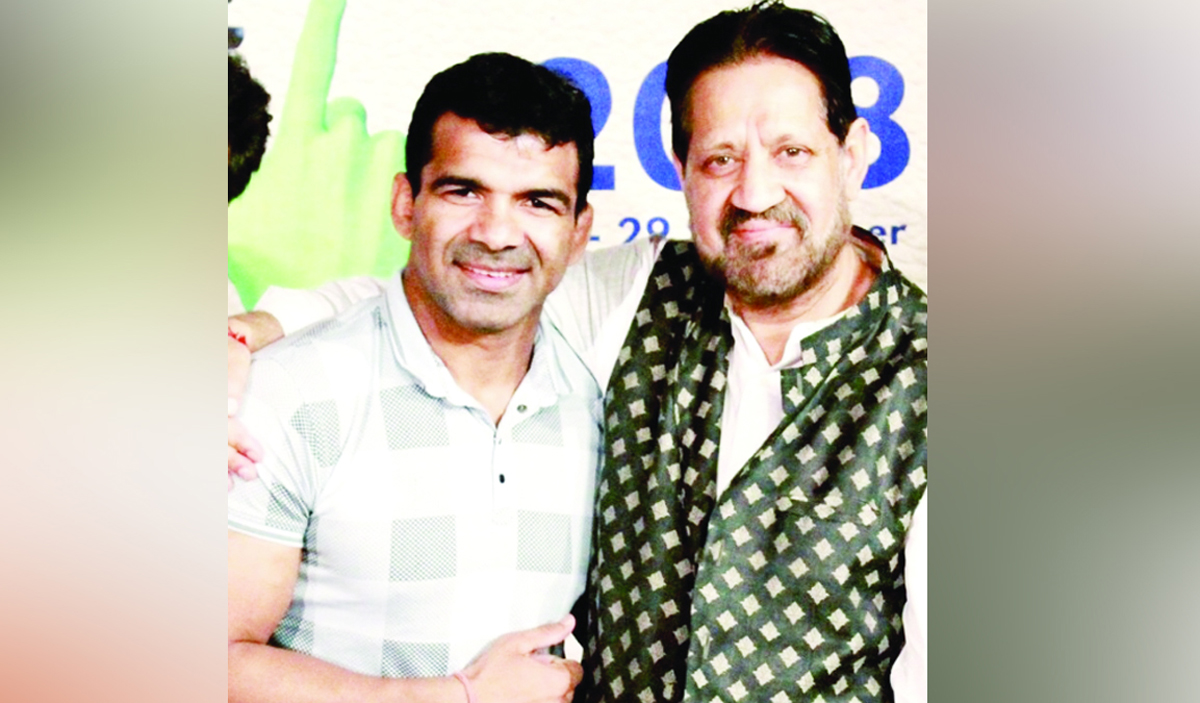Ashok Ogra
Persons with disabilities often face societal barriers and discrimination in many societies. Seen as a liability, they are denied access to opportunities essential to their growth and well-being. This restricts their mobility beyond the cause of their disability.
However, given the right environment, encouragement and opportunity they have the potential to excel in many fields including the highly competitive sports.
Sports can help reduce if not totally eliminate the stigma and discrimination associated with disability because it can transform community attitudes about persons with disabilities by highlighting their innate talent and creative skills. In fact, for the differently-abled, sport is hugely empowering. It helps them to reduce dependence and gain confidence to negotiate the challenges of life. It also helps in reducing stereotypes and negative perceptions associated with women with disabilities who face even greater challenge to eke out a living and lead life with dignity.
Among many activities/ causes that I associate myself with, nothing gives me as much joy and pleasure as engaging with an internationally known NGO – BROTHERHOOD- that works in the social sector, and, through its programmes, aims to sensitize the society to the issues associated with disability.
Founded by Satish Kapoor who left a cushy job to work for and among the differently-abled, BROTHERHOOD also organizes a unique international Film Festival ‘WE CARE’ on the issue of disability. The festival helps in drawing attention of the policy makers and society to the challenges they face in leading a normal life.
There have been two trends in film-making insofar as Bollywood films are concerned. As my friend Dr.Atanu Mohapatra aptly notes “portrayal of disability in films swings primarily between two extremes – pity, fun, caricaturing, sympathy, and awesome heroism are at one end of the spectrum while discrimination, coping-up, emotional swings and aspirations of the human soul are at the other end.”
This is unlike Hollywood films such as The Miracle Worker, which was based on Helen Keller’s life, or Children of a Lesser God, where the deaf-mute heroine learns to convey her thoughts.
However, WE CARE film festival is exclusively devoted to films on and about differently-abled – highlighting their stories of struggle and success, and providing a platform to the differently able to display their creative talent: photography, painting, singing, dancing etc.. . It is held at various venues in India and abroad. AIMC plays host to the festival in Delhi.
It was at one such festival that I first met noted wrestler Virendra Singh (Goonga Phelwan) who was born deaf and dumb. My friendship with him has only grown over the years. Virendra’s presence at such festivals further boosts the confidence among the differently-abled children to pursue their dreams. Award winning film ‘GOONGA PHELWAN’ truly captures his struggle and success is also screened at such festivals.
This year Virendra has been conferred with Padma Shri – the first from the deaf & dumb category to be honoured with such an award under sports category. He is already an Arjun Awardee- the highest national honour for a sportsperson.
Virendra was born in Jhajjar district of Haryana. The place is hub of wrestling Akhara (rings) in the country, and has the distinction of training hundreds of wrestlers some of whom have brought laurels in international events like Olympics, Commonwealth Games and Asian Games. Bajrang Punia who is ranked No 1 in the world in 65 kg category and Sushil Kumar who became world champion in 66 kg category in 2010 – are both from Jhajjar.
Virendra’s father Ajit Singh was working in CISF in Delhi. He was also a wrestler in his young days. Because of the nature of his job and the fact that Ajit did not enjoy good health, he gave the custody of his son to his younger brother Surender Singh who too was a wrestler. Surender started giving him personal coaching and sent the child to a local gymnasium in Sadar Bazar in old Delhi. That is how the journey for Virendra began in wrestling.
Soon the ‘dumb wrestler’ started participating in the riots in Mori Gate area of Delhi. Virender won his first major title ‘Nausherwan’ and received a cash prize of Rs. 11,000.
Soon Virendra won the only gold medal for India at the 2005 Deaflympics in Melbourne in 74-84kg freestyle wrestling, a silver medal at the second World Deaf Wrestling Championships in 2008 in Yerevan, Armenia, and a bronze at the 2009 Deaflympics in Taipei, Taiwan and a bronze at the 2012 World Deaf Wrestling Championships in Sofia, Bulgaria.
The Deaflympics is an event permitted by the International Olympic Committee where the deaf athletes can take part in the competition at a high level. Unlike other events of IOC, athletes cannot be guided through voice. These games are organized by the International Committee of Sports for the Deaf since 1924. And it is held every four years.
Virendra has also taken part in various national competitions with able-bodied wrestlers – referee using visual and tactile cues during the bout.
Unfortunately, the International Olympic Committee and our own sports bodies do not allow the use of cues other than a whistle – thus debarring Virendra from taking part and competing with able-bodied wrestlers at national and international level.
The learning from participating in such festivals and watching award winning films is that the human spirit is one of ability and courage. It is to acknowledge that disability is a matter of perception. And that the true disability in life is a bad attitude.
(The author is a noted management & media professional and works for Apeejay Education Society.)


